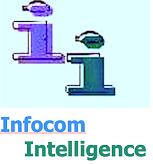My PhD thesis is not completed, even though I widely analyzed strategic innovation management for almost 4 years. I am studying the dilemma Make or Buy innovation to create value, through Strategic Project Portfolio Management (SPPM). It appears that few industries have what I call “highly dynamic” SPPM. For instance, big pharmaceuticals such as Pfizer, have thousands of innovation projects and use a formal SPPM to create more corporate value. While the tendency in the past decade in this industry was investing massive internal R&D, a new trend has emerged with a more optimal mix between making innovation and buying innovation. Big pharmas are acquiring more biotechnology firms and sub-contracting innovation, for a more “open innovation” system.
Another firm, which is probably using a systematic approach in SPPM, and moving toward a more highly dynamic approach, is Google. Recently, David Lawee, the vice president of corporate development of Google said that the acquisition of the wireless-software start-up Android was Google’s “best deal ever”. Furthermore, in buying innovation, integration is the key. According to the VP, when Google buys a company, it’s up to the entrepreneurs behind that company to make it a success. Android was acquired for around $50M in 2005, representing around 40% of total 2005 acquisitions. The founder of Android stayed with Google and was the champion of the development of Android’s platform as an open-source operating system. It is now the fastest growing platform for high-end smartphones, a tough opponent for Apple, RIM and Nokia.
In infocom industries a key metric exist: Is the technology being used? A lot of it depends on the perseverance of the team coming in. Google does not charge for the operating system itself, but the company profits from mobile ads displayed on Android phones. In 2010, mobile ads represent around $1 billion in revenues for Google. These revenues come mainly from one of its latest acquisition: AdMob. While mobile ad networks are very sexy and growing very fast, Google had to pay $750M for AdMob a mobile-advertising startup in 2010. Timing and integration is almost everything in acquisitions and the payoff on this investment will be more long term. Google is the leader in the number of acquisitions for 2009-2010 in infocom industries and made over $8 billion in acquisitions since its creation in 1998.
Louis Rhéaume
Infocom Intelligence
louis@infocomintelligence.com


No comments:
Post a Comment